| Listing 1 - 10 of 36 | << page >> |
Sort by
|

ISBN: 9004106170 9004332510 9789004106178 9789004332515 Year: 1996 Volume: 35 Publisher: Leiden, The Netherlands : E.J. Brill,
Abstract | Keywords | Export | Availability | Bookmark
 Loading...
Loading...Choose an application
- Reference Manager
- EndNote
- RefWorks (Direct export to RefWorks)
Many studies have portrayed Judaism in Antiquity as sectarian, with a variety of groups all claiming to be The True Israel. Early Christianity is alleged to have begun in this context as one more Jewish sect claiming such authority. However, the second-century Christian Justin Martyr is the first person known to have used the phrase 'the True Israel'. This book examines the uses of the names 'Jew', 'Hebrew' and 'Israel' in the surviving literature - especially the Bible, Dead Sea Scrolls, Philo, Josephus, New Testament and Mishnah - to determine whether this is an adequate or accurate picture. It discusses the associations of each word, as determined by their actual usage and collocations rather than their theoretical origins. It will be of value to scholars of ancient Judaism and early Christianity. This publication has also been published in paperback, please click here for details.
Christian literature, Early --- Jews --- Rabbinical literature --- Greek literature --- History and criticism --- Name --- Jewish authors --- Bible --- Dead Sea scrolls --- Terminology --- 229*319 --- 276:296 --- 296*1 --- -Greek literature --- -Jews --- -Rabbinical literature --- -Hebrew literature --- Jewish literature --- Hebrews --- Israelites --- Jewish people --- Jewry --- Judaic people --- Judaists --- Ethnology --- Religious adherents --- Semites --- Judaism --- Balkan literature --- Byzantine literature --- Classical literature --- Classical philology --- Greek philology --- Early Christian literature --- Patristic literature --- Qumran en het jodendom --- Patrologie. Patristiek-:-Judaïsme. Jodendom --- Hebreeuwse bijbel: targum; midrasj; bijbelcommentaren; haggadische verzamelingen--(algemeen) --- -History and criticism --- Theses --- -Qumran en het jodendom --- 296*1 Hebreeuwse bijbel: targum; midrasj; bijbelcommentaren; haggadische verzamelingen--(algemeen) --- 229*319 Qumran en het jodendom --- -229*319 Qumran en het jodendom --- Judaism and literature --- Names in the Bible --- Jewish authors&delete& --- Bible. --- Dead Sea scrolls. --- Jerusalem scrolls --- ʻAin Fashka scrolls --- Jericho scrolls --- Scrolls, Dead Sea --- Qumrân scrolls --- Rękopisy z Qumran --- Shikai bunsho --- Megilot Midbar Yehudah --- Dodezee-rollen --- Kumránské rukopisy --- Documentos de Qumrán --- Textos de Qumrán --- Rollos del Mar Muerto --- Manuscritos del Mar Muerto --- Manuscrits de la mer Morte --- Dödahavsrullarna --- Kumranin kirjoitukset --- Kuolleenmeren kirjoitukset --- Qumranhandskrifterna --- Qumranin kirjoitukset --- Qumran Caves scrolls --- Antico Testamento --- Hebrew Bible --- Hebrew Scriptures --- Kitve-ḳodesh --- Miḳra --- Old Testament --- Palaia Diathēkē --- Pentateuch, Prophets, and Hagiographa --- Sean-Tiomna --- Stary Testament --- Tanakh --- Tawrāt --- Torah, Neviʼim, Ketuvim --- Torah, Neviʼim u-Khetuvim --- Velho Testamento --- Terminology. --- Christian literature [Early ] --- Jews - Name. --- Christian literature, Early. --- Judaism and literature. --- Rabbinical literature. --- Hebrew literature --- Literature and Judaism --- Literature --- Jewish literature (Hellenistic) --- Name. --- History and criticism. --- Jewish authors. --- Palaia Diathēk --- Greece. --- al-Yūnān --- Ancient Greece --- Ellada --- Ellas --- Ellēnikē Dēmokratia --- Elliniki Dimokratia --- Grčija --- Grèce --- Grecia --- Gret͡sii͡ --- Griechenland --- Hellada --- Hellas --- Hellenic Republic --- Hellēnikē Dēmokratia --- Kingdom of Greece --- République hellénique --- Royaume de Grèce --- Vasileion tēs Hellados --- Xila --- Yaṿan --- Yūnān --- Christian literature, Early - History and criticism --- Jews - Name --- Rabbinical literature - History and criticism --- Greek literature - Jewish authors - History and criticism
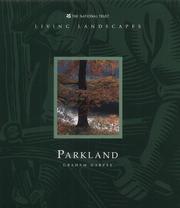
ISBN: 0707803233 Year: 2002 Publisher: London The National Trust
Abstract | Keywords | Export | Availability | Bookmark
 Loading...
Loading...Choose an application
- Reference Manager
- EndNote
- RefWorks (Direct export to RefWorks)
LGA Landscape & Garden Architecture --- Great Britain --- coloured photographs --- landscape & garden architecture --- parks
Book
ISBN: 9781844656936 9781844656929 1844656934 1844656926 9781315729572 9781317546313 9781317546320 Year: 2013 Publisher: Durham : Acumen Pub.,
Abstract | Keywords | Export | Availability | Bookmark
 Loading...
Loading...Choose an application
- Reference Manager
- EndNote
- RefWorks (Direct export to RefWorks)
"Religion is more than a matter of worshipping a deity or spirit. For many people, religion pervades every part of their lives and is not separated off into some purely private and personal realm. Religion is integral to many people's relationship with the wider world, an aspect of their dwelling among other beings - both human and other-than-human - and something manifested in the everyday world of eating food, having sex and fearing strangers. Food, Sex and Strangers offers alternative ways of thinking about what religion involves and how we might better understand it. Drawing on studies of contemporary religions, especially among indigenous peoples, the book argues that religion serves to maintain and enhance human relationships in and with the larger-than-human world. Fundamentally, religion can be better understood through the ways we negotiate our lives than in affirmations of belief - and it is best seen when people engage in intimate acts with themselves and others"--Publisher website. "Religion is more than a matter of worshipping a deity or spirit. For many people, religion pervades every part of their lives and is not separated off into some purely private and personal realm. Religion is integral to many people's relationship with the wider world, an aspect of their dwelling among other beings - both human and other-than-human - and something manifested in the everyday world of eating food, having sex and fearing strangers. Food, Sex and Strangers offers alternative ways of thinking about what religion involves and how we might better understand it. Drawing on studies of contemporary religions, especially among indigenous peoples, the book argues that religion serves to maintain and enhance human relationships in and with the larger-than-human world. Fundamentally, religion can be better understood through the ways we negotiate our lives than in affirmations of belief - and it is best seen when people engage in intimate acts with themselves and others"--Publisher website
Religion --- Religions. --- Philosophy. --- Social aspects. --- Religions --- Religion and sociology --- Sociologie religieuse
Book
ISBN: 1844657116 1322130515 1317544498 1317544501 1844657124 1315728966 9781844657117 9781315728964 9781317544487 9781317544494 9781138928978 Year: 2014 Publisher: Oxon [England] Routledge
Abstract | Keywords | Export | Availability | Bookmark
 Loading...
Loading...Choose an application
- Reference Manager
- EndNote
- RefWorks (Direct export to RefWorks)
Animism is an important part of many religions - from Shinto, Hinduism and Buddhism to Paganism and a range of indigenous religions - which connects the spiritual and material and holds that humans might not be unique in possessing souls or in being intentional agents. Over recent decades, research into animism has broadened its scope to consider, at one end, the vibrant roles of objects in human lives and, at the other, the possible similarities between humans and other species. "The Handbook of Contemporary Animism" brings together an international team of scholars to examine the full range of animist worldviews and practices. The Handbook opens with an examination of recent approaches to animism. This is followed by evaluations of ethnographic, cognitive, literary, performative, and material culture approaches as well as advances in activist and indigenous thinking about animism. "The Handbook of Contemporary Animism" invites readers to think creatively and critically about the world around us and will be invaluable to students and scholars of Religion, Sociology and Anthropology.
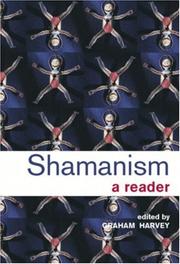
ISBN: 9780415253307 0415253292 0415253306 9780415253291 Year: 2003 Publisher: London ; New York : Routledge,
Abstract | Keywords | Export | Availability | Bookmark
 Loading...
Loading...Choose an application
- Reference Manager
- EndNote
- RefWorks (Direct export to RefWorks)
Shamanism. --- Chamanisme --- shamanism --- Siberia --- Aboriginal Australia --- Northern Europe --- South America --- western New Age --- rave culture --- popular mythology --- anthropology --- psychology --- musicology --- botany --- hallucinogens
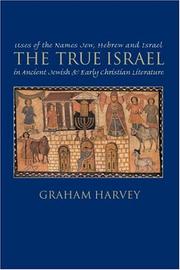
ISBN: 0391041193 9780391041196 Year: 2001 Publisher: Leiden: Brill,
Abstract | Keywords | Export | Availability | Bookmark
 Loading...
Loading...Choose an application
- Reference Manager
- EndNote
- RefWorks (Direct export to RefWorks)
Christian literature, Early --- Jews --- Rabbinical literature --- Greek literature
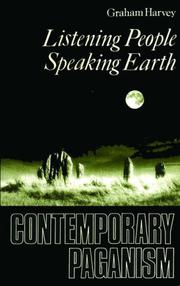
ISBN: 1850652724 Year: 1997 Publisher: London : Hurst,
Abstract | Keywords | Export | Availability | Bookmark
 Loading...
Loading...Choose an application
- Reference Manager
- EndNote
- RefWorks (Direct export to RefWorks)
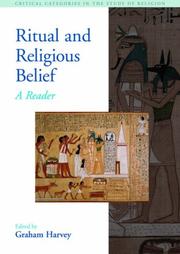
ISBN: 1904768172 Year: 2005 Publisher: London : Equinox,
Abstract | Keywords | Export | Availability | Bookmark
 Loading...
Loading...Choose an application
- Reference Manager
- EndNote
- RefWorks (Direct export to RefWorks)
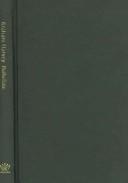
ISBN: 023113701X 9780231137010 0231137001 9780231137003 Year: 2006 Publisher: New York (N.Y.) : Columbia university press,
Abstract | Keywords | Export | Availability | Bookmark
 Loading...
Loading...Choose an application
- Reference Manager
- EndNote
- RefWorks (Direct export to RefWorks)
Ursprungsbefolkningar --- Animism. --- religion. --- ekologi. --- indigenous spirituality --- environmentalist spiritualities --- animism --- the Ojibwe --- the Maori --- Aboriginal Australians --- eco-paganism
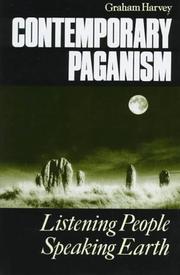
ISBN: 0814735495 Year: 1997 Publisher: 38 King Street, Covent Garden, London : C. Hurst and Co,
Abstract | Keywords | Export | Availability | Bookmark
 Loading...
Loading...Choose an application
- Reference Manager
- EndNote
- RefWorks (Direct export to RefWorks)
Neopaganism. --- Paganism --- Néopaganisme --- Paganisme
| Listing 1 - 10 of 36 | << page >> |
Sort by
|

 Search
Search Feedback
Feedback About UniCat
About UniCat  Help
Help News
News